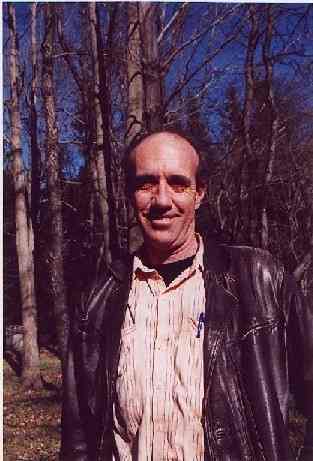"People may become friends, they may become acquaintances, relations, they may become connected through industry, political friendship, partnership in business or any collaboration, and yet they may be separated. Nearness in space does not bring the nearness of real friendship. There is only one way of coming near to one another and that is by way of the heart." Hazrat Inayat Khan
I have just had the most remarkable experience. As some of you may know, I guide Sufi retreats. For the most part I use the alchemical model developed by my teacher, Pir Vilayat Inayat Khan. When I work with someone not in this country I usually avail myself of a web cam and mic. We, the retreatant and I, establish a set time that I will connect with them daily and we talk over the computer. That is how I usually do it; but not this last time.
I just led a retreat for one of my students that was a true collaboration. This person wanted a healing retreat which is a very specific model and not at all alchemical. I am not conversant with it but it so happens that my wife is. Secondly this person really wanted to get away from their house and do it somewhere else. So I arranged with someone I trust to give her a space, feed her, and monitor her progress through the retreat. This is not something I have ever done before. Next, the person monitoring is also in training to be a retreat guide so, in a way I was also mentoring them through the process. Lastly, the person who is their mentor in the retreat guide training was also in the loop and wanted reports. So we had a five way retreat process; the actual person doing the retreat; my wife who wrote the retreat; myself as the fulcrum so to speak; the person hosting my retreatant and monitoring the progress and the hosts mentor. Got all that? It was a remarkable experience. I admit to being a little concerned how it would all work out but I need not have worried.
The key to it all was the host. This person became my voice, my hands, and my intuitive responses. They gave me the most complete reports I believe I have ever seen on this process. The most remarkable aspect was that, when the retreatant had a question about something or a worry, the host, as it was reported to me, seemed to give the exact same answers that I would, often almost word for word as I would say them.
We all felt something deep flowing from heart to heart.
And that is the point of this article. When you trust someone and they actually come through - there is a heart connection that is much more valuable then any kind of intellectual or societal friendship. It is often said that we are all connected but who really believes it. Seriously, in your heart of hearts do you really think you are connected to all other beings and things? It sounds good but who wants to actually do it. But, there can occasionally come a true meeting of hearts. We have the capacity to work together, to collaborate in a deeply meaningful way. We occasionally can have the privilege of working with people deeply sincere in their desire to serve and who have the wherewithal to actually follow through in a genuine effort to merge with us and become more.
I decided to trust this person. I gave them one of my most precious friends to care for and they did not disappoint. What more can be asked of a friend?
My heart is full and my blessings continue to unfold.
May the coming year find you as a friend.
Love and Blessings, Musawwir

